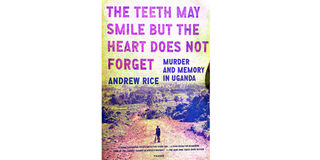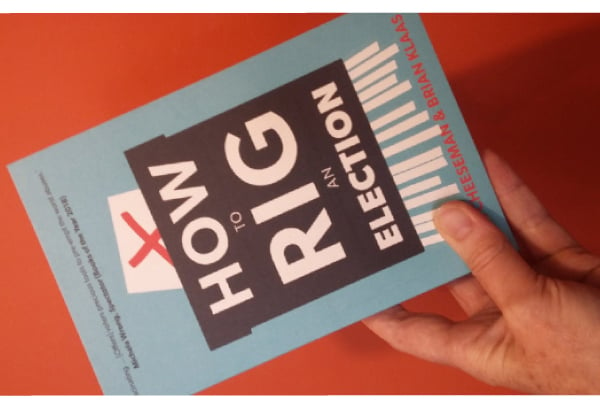Prime
Book review: Reliving Uganda’s dark past through one killing

What you need to know:
- The second part of Rice’s book is a general study of Uganda’s history: the joys of independence, the hopes and dreams dashed not long after the rise of Amin, the double fall of Obote, the Luweero war, and the rise of Museveni and everything in between.
Uganda’s past—especially the first three decades after independence—was a period characterised by turmoil, bloodletting, and political instability. Of that past, framers of the 1995 Constitution wrote in the first paragraph of its preamble: “…recalling our history which has been characterised by political and constitutional instability.”
Of the disappeared, the wounded, the orphaned, the widowed, and the murdered of that period, a lot of books and articles have been written, songs sung, films and documentaries shot.
Normally, the story is told in a generic form with presidents Idi Amin or Milton Obote as the sure villains, and then it ends. That is not the approach employed by Mr Andrew Rice.
What sets his book apart from the pack is that it tells a personal story, the general story, and then relates the circumstances of the time to events in contemporary Uganda. So, this book can be seen—and will be reviewed here—as a three-in-one.
The first part is the story of Duncan Laki, a Ugandan American-based lawyer who was only 19 when his father—a local chief—was disappeared in September 1972. Mr Laki lived and was educated at the mercy of good men like Yona Kanyomozi.
Several decades later, when the condition and timing was right, Mr Laki set out—despite some resistance and caution from family and friends—to find answers to what befell his father after the abduction. Also on his card was the need to give his father, who all indications showed was murdered, a befitting burial as per the culture and traditions of the Banyakore.
While he does eventually find the main suspects behind his father’s disappearance and death, the road was long and winding—full of twists and turns, grace to grass stories, and more. The trial of men suspected to have killed Mr Laki’s father is filled with drama from the start to end, with a then youthful Mr Caleb Alaka—Kampala’s celebrated criminal defence lawyer—at the centre; a legal thriller that would make John Grisham jealous.
Yet for all his effort, the trial does not go the way Mr Laki wanted it to, mostly because of factors beyond his control. The silver lining on his dark cloud was that he was able to find and exhume the remains of beloved father and give him a decent burial.
The second part of Rice’s book is a general study of Uganda’s history: the joys of independence, the hopes and dreams dashed not long after the rise of Amin, the double fall of Obote, the Luweero war, and the rise of Museveni and everything in between.
To the sharp eye of an internationally acclaimed journalist that he is, Mr Rice adds the skills of a detective, and archaeology.
With these, he sets out and unearths the history of the Nubian minority, tracing their journey all the way from Sudan to West Nile and how they have influenced not just the political and religious patterns of the area, but Uganda as a whole. Also unravelled is the history of Ankole, the clan disputes between the Bahima and Bairu, and how the different sides used them to their advantage in the post-independence politics. The local rivalries that developed, as Mr Rice shows, led to plots, counterplots, accusations of poisoning, threats of genocide, and ended with the death of some influential figures.
The politics that played out then continued to influence matters long after the Uganda people’s Congress was out of power, and in a way led to the disappearance and death of Mr Laki’s father as the author shows. Even in death, the toxic mix of local politics Ankole almost impeded Duncan’s pursuit of a decent burial for his father’s remains as many featured his search for answers would open old wounds—a can of warms—that could become a menace for many.
The third part of the book is more recent, the politics of Uganda post 1986, with special emphasis on the 2000s, how much has changed, how much was learnt from the era of Amin, his mistakes and how the nation is moving on so much so it has new heroes like Big Brother Africa finalist—Mr Gaetano Kaggwa.
In his first mention of Uganda’s current leader, Mr Rice writes about Mr Museveni as a man on a serious mission. Analysing his presidency, Mr Rice writes of the corruption in the army, the impunity of leaders, and concludes that while Mr Museveni was hailed as part of “a new breed of African leaders” by US President Bill Clinton, for Ugandans “the future looks more like the past … …with each egregious scandal.”




